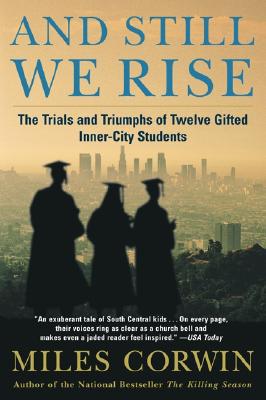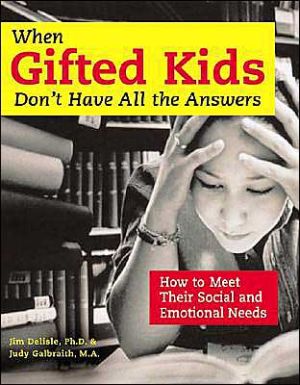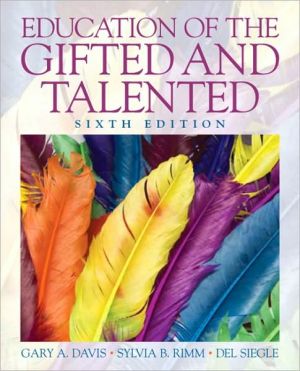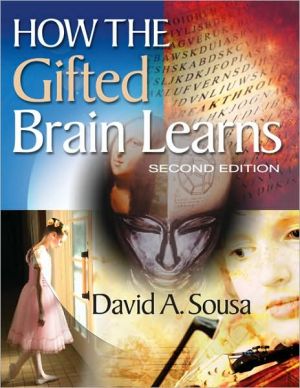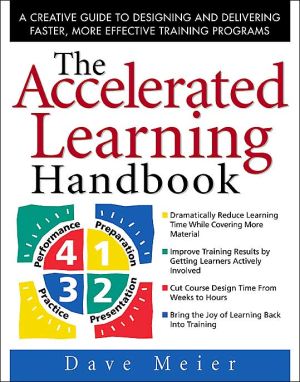American Nerd: The Story of My People
“One of the season’s most talked about cultural studies” (Los Angeles Times)—an incisive and irreverent appreciation of nerds that combines history, sociology, psychology, and memoir from noted journalist and self-proclaimed nerd Ben Nugent.\ Most people know a nerd when they see one, but yet can’t define just what a nerd is exactly. American Nerd: The Story of My People gives readers the history of the concept of nerdiness and its related subcultures. What makes Dr. Frankenstein the...
Search in google:
Most people know a nerd when they see one but can't define just what a nerd is. American Nerd: The Story of My People gives us the history of the concept of nerdiness and of the subcultures we consider nerdy. What makes Dr. Frankenstein the archetypal nerd? Where did the modern jock come from? When and how did being a self-described nerd become trendy? As the nerd emerged, vaguely formed, in the nineteenth century, and popped up again and again in college humor journals and sketch comedy, our culture obsessed over the designation.Mixing research and reportage with autobiography, critically acclaimed writer Benjamin Nugent embarks on a fact-finding mission of the most entertaining variety. He seeks the best definition of nerd and illuminates the common ground between nerd subcultures that might seem unrelated: high-school debate team kids and ham radio enthusiasts, medieval reenactors and pro-circuit Halo players. Why do the same people who like to work with computers also enjoy playing Dungeons & Dragons? How are those activities similar? This clever, enlightening book will appeal to the nerd (and antinerd) that lives inside all of us. Publishers Weekly In his charming and disarmingly serious study of the history of the "nerd" in popular culture and throughout modern history, Nugent (Elliott Smith and the Big Nothing) succeeds in crafting a nuanced discussion without resorting to smugness or excessive cleverness. His prose is straightforward, but the writing is never dry, as Nugent maintains a brisk pace by chasing an entertaining series of tangents across short chapters. Discrete pockets of nerd-dom are carefully observed and analyzed, with an eye for connections that lead to unusual places. While there are engaging sections about more obvious nerd subjects like the rise of online gaming and the history of American science-fiction clubs, Nugent takes his book in surprising directions, such as the ethnic implications of the "nerd" categorization, particularly in regard to Jewish and Asian stereotypes. In one chapter, Nugent finds correspondence between nerdiness and people with Asperger's syndrome, astutely drawing comparisons between the socializing problems experienced by both groups and positing that many of those considered "nerds" historically might in fact be on the autism spectrum. Another unexpected detour, this one into the intense subculture of high school and college debaters, turns into an extraordinarily poignant meditation on the friendships engendered by shared passions. Swinging ably from personal anecdotes to historical perspective, Nugent's exploration of outcasts is a triumph. (May)Copyright © Reed Business Information, a division of Reed Elsevier Inc. All rights reserved.
Before I launch into a discussion of what a nerd is and where the idea of nerds comes from, I'd like to disclose that when I was eleven, I had a rich fantasy life in which I carried a glowing staff. On earth I ran to class under an L.L.Bean backpack erupting with books that I was too distracted by my medieval life to put in my locker, as I was pursued by an actual medieval-style warrior society of lacrosse players. When I saw them, I would blend with the crowd or run. They, in turn, established a pretty good Nugent impersonation: you bend forward at the waist to signify the burden of the swollen backpack and stick out your elbows, funky-chicken style, with your hands bunched into fists on your chest to signify the straps of the backpack clutched close to the body. Running through the halls with a backpack that was capable of doing real harm to others didn't do much to draw sympathy, so nobody raised serious objections when every once in a while somebody hit me in the crotch with a clarinet case or hockey stick. All of which is to say my journalistic objectivity with regard to my subject matter is seriously compromised. But I am trying my best.\ That means I'm not writing a defense of nerds or a celebrationof nerds or a polemic against the nerd stereotype. There is a rationale, I think, for despising the young me. I empathize with nerds and antinerds alike.\ what is a nerd?\ As of this morning, Wikipedia states that "nerd, as a stereotypical or archetypal designation, refers to somebody who pursues intellectual interests at the expense of skills that are useful in a social setting such as communication, fashion, or physical fitness." That sounds about right, but it's wrong.\ If an art critic arrives at your get-together in khakis and an undershirt, helps himself to six fingers of Jameson, tries to flirt with your teenage daughter, and then urinates with the bathroom door open, he's behaving like a socially awkward intellectual and exhibiting a pronounced disengagement with fashion and physical fitness. But "nerdy" doesn't feel like the best description of his behavior. The graphic designer you've recently met, who visits your apartment for the first time and talks for three hours about the suicidal impulses she's weathered since she dropped out of grad school, then describes your Klimt poster as sort of "freshman year of collegey," is also a socially awkward intellectual. But she isn't acting like a nerd. The problem with the current Wikipedia entry, in other words, is that nerdiness isn't really a matter of intellectualism and social awkwardness.\ I believe there are two main categories of nerds: one type, disproportionately male, is intellectual in ways that strike people as machinelike, and socially awkward in ways that strike people as machinelike. These nerds are people who remind others, sometimes pleasantly, of machines.\ They tend to remind people of machines by:\ 1. Being passionate about some technically sophisticated activity that doesn't revolve around emotional confrontation, physical confrontation, sex, food, or beauty (most activities that excite passion in non-nerds — basketball, violin, sex, surfing, acting, knitting, interior decorating, wine tasting, etc. — are built around one of these subjects).\ 2. Speaking in language unusually similar to written Standard English.\ 3. Seeking to avoid physical and emotional confrontation.\ 4. Favoring logic and rational communication over nonverbal, nonrational forms of communication or thoughts that don't involve reason.\ 5. Working with, playing with, and enjoying machines more than most people do.\ Do I mean that nerds in this category are robots made of flesh and blood? No.\ Brian Wilson is not into the ocean. "I'm afraid of the water," he says when people ask him about surfing. One interviewer has described his "Rain Man-like personality" as being reminiscent of a "voice-mail menu." Wilson is from Hawthorne, California, ten minutes from the Pacific, which makes his hydrophobia impressive. But his mother, Audree, has long maintained that he hummed the entire melody of "The Marines' Hymn" before he could talk, and that his mastery of musical instruments proceeded apace. When his younger brother Dennis persuaded him to write a song about a new teen pastime, he came up with "Surfin'," which became the Wilson brothers' first hit and led to their reinvention as the Beach Boys. Wilson proceeded to paint a fantasia in song, an amber-encased America ruled by athletes with multiple vehicles and multiple girlfriends. In the mid-1960s, as the rest of the Beach Boys toured Asia, he surrounded himself with studio musicians and recorded Pet Sounds, making Coke bottles into percussion instruments, recording in a pit of sand to get the right sound, writing string charts, and letting other people write his lyrics. The more the world fell for his make-believe, the more time he spent alone in his studio, sequestered from the world, living with equipment.\ Wilson did things a machine cannot do. His work was more intuitive than logical. Nerds of this kind, crucially, are not actually like machines; they just remind people of them. They get stuck with the name "nerd" because their outward behavior can make them seem less than, and more than, human.\ The second type of nerd probably consists equally of males and females. This is a nerd who is a nerd by sheer force of social exclusion.\ In 1959, a twelve-year-old ninth grader named Anne Beatts moved from a small, cozy private school in Dutchess County, New York, to a public high school in Somers, then one of the more remote New York City commuter towns.\ "That was when I first heard the expression 'nerd,'" says Beatts. "The joke definition of nerd was someone who farts in the bathtub and bursts the bubbles. But really it was a person considered by the popular kids to be uncool. A lot of things would make you a nerd, and they were basically being thought of as someone who worked, who did homework in study hall. Teenage acne was a qualification, appearance. I was wearing undershirts and everyone else was wearing training bras, at least."\ Friendless, she tried to get her homework done at school instead of at home, so she would work during homeroom and lunch. The only other person who opted for that isolation was "a mathematical genius who muttered to himself." His name was Marshall.\ "So somebody noticed this and they said, 'Do you like Marshall?' And I didn't know high-school vocabulary, and I didn't know the loadedness of the word like. I didn't want to go, 'No, I don't like him,' or 'I dislike him,' so I said, 'Sure.' And they went, 'Oh, she likes him. There goes Marshall's girlfriend.' And so this became an epithet and a cry of humiliation to me in my first year of high school, Marshall's Girlfriend. And so I'd been labeled as a nerd."\ By the time grade-skipping had made her a fifteen-year-old senior in 1962, Beatts had become editor of the high-school newspaper, and by pursuing every activity that might engender acceptance, up to and including cooking hot dogs for the football game, she had attained a perch where she was no longer mocked as a matter of routine. She chose this time to publish an editorial in the paper called "Leave the Nerds Alone," which caused her to be suspended from her editorship for its controversial subject matter.\ In the early 1970s she wrote for National Lampoon, and she landed at Saturday Night Live in 1975. There, she created the "Nerds" sketches with her sometimes writing partner Rosie Shuster, helping to bring the word nerd into mainstream usage, which will be discussed more thoroughly later. "Marshall Blechtman" became a character on the sitcom about nerds Beatts created, Square Pegs.\ Anne Beatts is an example of the second kind of nerd. Beatts became a nerd not because she was like Marshall but because she got shoved into the same category as Marshall (a type-one nerd) by peers who were looking for somebody to exclude.\ The heroes of American popular culture are surfers, cowboys, pioneers, gangsters, cheerleaders, and baseball players, people at home in the heat of physical exertion. But so many of the individuals who make these images are more like Anne Beatts. Their voyeurism — their sense of staring from the wrong lunch table at a radiant nation — makes for a vision of America that appeals to the whole world, including America itself. There's a globe full of outsiders thirsty for glimpses of the land of myth, and American nerds have gratified them with adoring images. Wilson — the bodiless studio addict who spent days refining drum sounds for songs about high-school football and girls on the beach — was the rule, not the exception, for North American fabulists, for DreamWorks as much as Microsoft. In this book, I'll try to catalog the way a largely nerdy chain of media figures has affected the way we think about nerds.\ I'll also address the relationship between nerdiness and ethnicity. You don't need to belong to any particular class or ethnicity to be a nerd, but some ethnic stereotypes are nerdier than others. In the late nineteenth century, educators strove to nourish the "primitive" in white middle-class boys and thus mold them into athletic men of character, the opposite of the "greasy grinds" who studied their way out of the Lower East Side. In the 1980s, opinion columnists warned that the Japanese were taking over the world through their unrivaled love of machines and their mechanistically corporate cast of mind. If a propaganda artist of the Third Reich had time-traveled to 1984 and watched Revenge of the Nerds, he might have interpreted the hero, Louis Skolnick, as a traditional age-old caricature of a Jew, and Ogre and his band of overwhelmingly blond-haired and blueeyed jocks as the image of ideal Aryans (in appearance, if not conduct), even though the film never explicitly raises the question of ancestry or religion. The linguist Mary Bucholtz has observed that some contemporary high-school students who consider themselves nerds cleave so tightly to American Standard English, even as the popular white kids cultivate hip-hop affectations, that they engage in what she called "hyperwhiteness" — whiteness so white it destroys the aura of normality that usually attends white people. The history of the concept of nerdiness helps show some of the ways we have thought about the primitive, the "Oriental," white people, Jews, nature, and the machine.\ "We" here does not mean "Americans." Rosie Shuster, Lorne Michaels, and Elvis Costello — two Canadians and an Englishman — all made their mark on the history of the nerd at the same pivotal moment. Tokyo is the city where otaku, a type similar to the American nerd, has its own neighborhood, Akihabara, known for waitresses who dress as manga characters. In England, the word boffin has been around for centuries. Theories about the fine differences in meaning between geek, dork, and nerd in Silicon Valley and other tech hives are all over the Internet, but, internationally, the nerd/otaku/geek/dork is a concept that involves: loneliness; the rote, mechanical nature of work in the industrial and postindustrial ages; the way modernity allows the body to fall into disuse; and the way contemporary mass media invite people into voyeuristic relationships with simple fictions and numb them to the pleasures of real life. To understand nerds is to enrich our understanding of many demons.\ Beyond the traits that fit into an intellectually defensible definition of nerd, there's a nerd tone, a nerd aesthetic. You know it when you see it: the indestructible-looking but nonetheless largely destroyed glasses, the pair of pleated shorts that exposes thigh, the childlike laugh, the intense self-seriousness. These are the universally acknowledged symptoms, and it's worth tracing how they come together in a chain of pop-culture images.\ What is the history of the nerd? What are the different nerd subcultures like, and what are the rules and rituals that hold together the communities within those subcultures? What do the stories of two of my friends from childhood have to do with all this?\ I will take a serious approach to a subject usually treated lightly, which is a nerdy thing to do.
Part 1 A History of the NerdWhat is a Nerd? 5The Mark of Greatness 13Newt Envy, and Were There Nerds in the Nineteenth Century? 17The Case Against Scientists in Towers 23The Rise of Phys Ed 29Dawn of the Fan 39Sherry Turkle, T. S. Eliot, and the Split Between Feeling and Thinking 49The Word Nerd and the Birth and Growth of the Guy in High Pants and Glasses 55Effeminate Jewish Grinds, Cyborg Asians 73Part 2 Among the NerdsZack and Jack and High-School Debate 99Case Study: Darren From the Ghetto of Amherst 111The Cool Nerd: Superficial Reflections on the Hipster 119Nerd Love 131The Autism Spectrum 141Pure Pwnage 153The Graying of the Old-School Nerd 163Coronation, or Why Group Nerd Events are Necessary 171Why do People Like Dungeons & Dragons and Fake Swords? 183Case study: Kenneth The Demonslayer 195Part 3 My Credentials 211Afterword 225Acknowledgments 235
\ From Barnes & NobleIn 1950, Dr. Seuss introduced at least one new species to the world, when the narrator of his If I Ran the Zoo announced that he would include "a Nerkle, a Nerd, and a Seersucker" in his menagerie. Once named, nerds seemed to pop up all over America, amusing us with their obscure intellectual endeavors, their lack of physical prowess, and paucity of social skills. It was not until the '80s when the media began to recognize that these awkward outsiders actually excel in almost every public arena, from technological invention and scientific research to artistic creativity. Benjamin Nugent's American Nerd is a discursive, entertainingly digressive cook's tour through this much-abused social class.\ \ \ \ \ Publishers WeeklyIn his charming and disarmingly serious study of the history of the "nerd" in popular culture and throughout modern history, Nugent (Elliott Smith and the Big Nothing) succeeds in crafting a nuanced discussion without resorting to smugness or excessive cleverness. His prose is straightforward, but the writing is never dry, as Nugent maintains a brisk pace by chasing an entertaining series of tangents across short chapters. Discrete pockets of nerd-dom are carefully observed and analyzed, with an eye for connections that lead to unusual places. While there are engaging sections about more obvious nerd subjects like the rise of online gaming and the history of American science-fiction clubs, Nugent takes his book in surprising directions, such as the ethnic implications of the "nerd" categorization, particularly in regard to Jewish and Asian stereotypes. In one chapter, Nugent finds correspondence between nerdiness and people with Asperger's syndrome, astutely drawing comparisons between the socializing problems experienced by both groups and positing that many of those considered "nerds" historically might in fact be on the autism spectrum. Another unexpected detour, this one into the intense subculture of high school and college debaters, turns into an extraordinarily poignant meditation on the friendships engendered by shared passions. Swinging ably from personal anecdotes to historical perspective, Nugent's exploration of outcasts is a triumph. (May)\ Copyright © Reed Business Information, a division of Reed Elsevier Inc. All rights reserved.\ \ \ Library JournalNugent-popular-culture observer, blogger, music critic, and biographer (Elliott Smith and the Big Nothing)-is, in justification of this extended essay's title, either a nerd or a recovering nerd. Present in all of his ruminations here are his ambivalence about his nerd status and his consideration of whether the designation is valid or void, flattering or pejorative-and the lack of stand-taking on that fundamental issue is a bit wearisome. But on the whole, this often fun, sometimes serious work offers stimulating insight into the lives of socially awkward, ultra-intellectualizing kids and hints at a happy ending for the despised-in-high-school set. To his credit, Nugent never once cites the easy example of über-nerd Bill Gates. Long passages on the online video and role-playing subcultures are not terribly gripping, but the associations Nugent makes between nerdism on the one hand and Asperger's syndrome and autism on the other are disturbing yet hopeful. Recommended for public libraries and psychology/media/sociology collections. [See Prepub Alert, LJ11/15/07.]\ —Scott H. Silverman\ \ \ \ \ \ Kirkus ReviewsAn amusing and insightful meditation on socially maladroit guys in horn-rimmed glasses. Journalist, blogger and Dungeons & Dragons veteran Nugent (Elliott Smith and the Big Nothing, 2004) delineates the world of the "nerd," which Newsweek described in 1951 as a Detroit term for "a drip or a square." Nerds have been exemplified in popular culture, he writes, by the bow-tied scientist Jerry Lewis played in The Nutty Professor, by Bill Murray and Gilda Radner in the Todd and Lisa sketches on Saturday Night Live and by the bullied misfits in the '80s classic Revenge of the Nerds. In his wide-ranging search for outcasts in the pages of literature and the hallways of high schools, Nugent finds nerds going as far back as Mary Shelley's emotionally disconnected Victor Frankenstein and the pedantic, graceless Mary Bennett in Pride and Prejudice. Often technical experts who are good with things but not with people, nerds can be found in the letters section of science-fiction periodicals, in engineering-school humor magazines and among adolescents who prefer the rule-bound culture of role-playing games to the emotion-charged messiness of real life. Nugent's description of a 1930s group called the Futurians (members included Isaac Asimov and Frederik Pohl) will suffice for all: "kids facing serious obstacles toward social acceptance-dental problems; immigrant accents; scrawny, uncomfortable-looking bodies." The author recalls his own life among nerdy childhood friends and brings us to such diverse nerdy organizations as the Society for Creative Anachronism, whose members painstakingly recreate aspects of life between 600 and 1600 CE, and the Los Angeles Science Fantasy Society, where all outsidersare always welcome. Unlike his sixth-grade friend Kenneth, who now manages a staff of game testers at a video-game company, Nugent broke long ago with his need for the "wizard/machine feeling" of nerdy activities, he writes. He certainly makes good use of his elf-with-sword days here. Great fun, whether you're cool or not. Agent: Amy Williams/McCormick & Williams Literary Agency\ \



